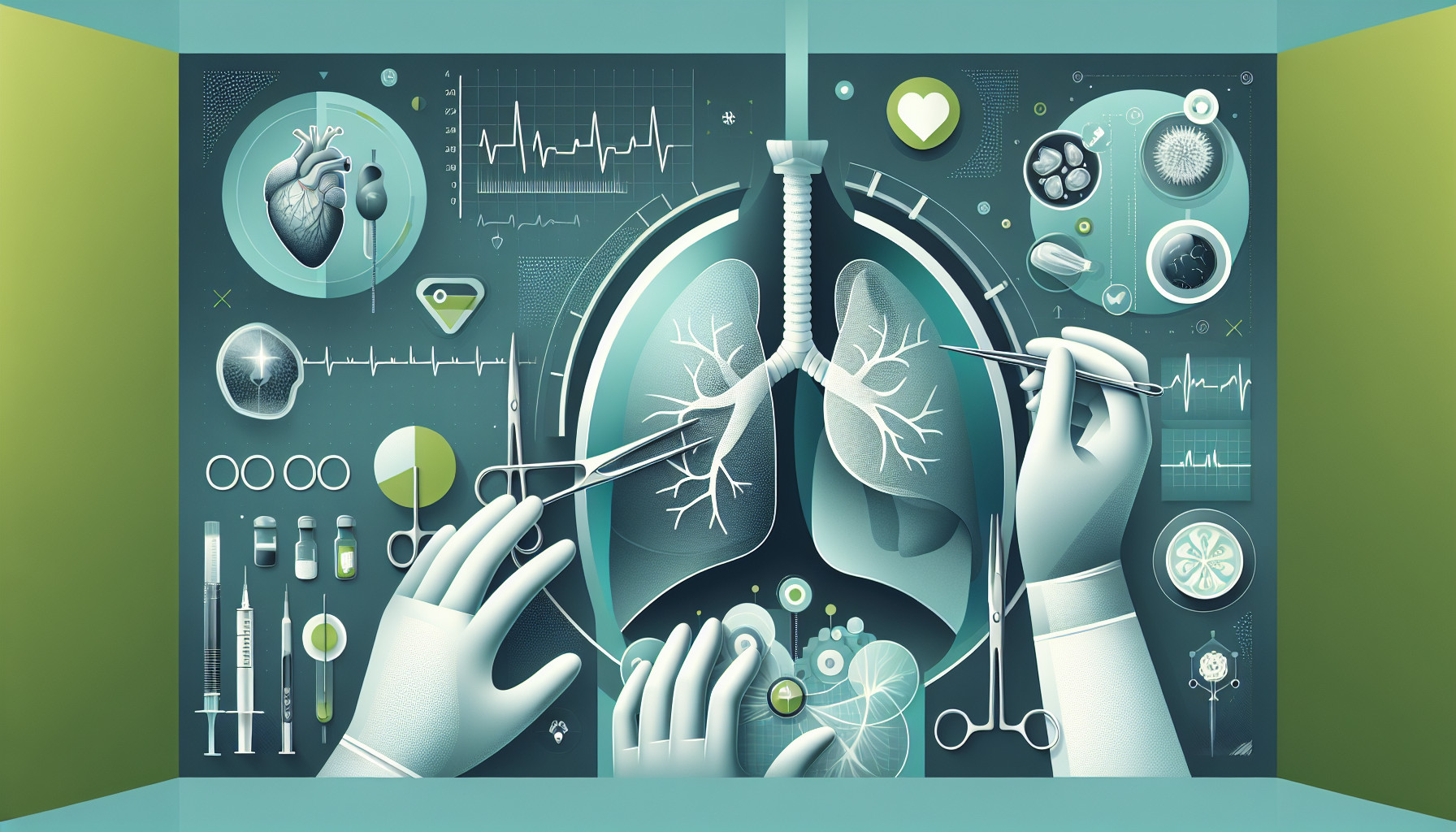Our Summary
This research study aimed to understand the experiences of patients in the first four months after having a lung transplant. 26 patients were interviewed about their feelings and experiences. The study found that while getting a lung transplant is often an overwhelmingly positive experience due to improved physical health, it also comes with physical and psychological challenges. Some patients experienced medical side effects and postoperative complications, while others faced psychological problems. Despite these challenges, the interviewees were pleased to have another chance at life and were excited to pursue their hopes and dreams. However, they also expressed apprehension about the future, given the strict health guidelines they had to follow and the uncertainty surrounding their prognosis. The study concludes that healthcare professionals should be aware of these challenges and provide appropriate support to patients after a lung transplant.
FAQs
- What was the primary aim of the research study about lung transplants?
- What were some of the challenges faced by patients after their lung transplant according to the study?
- What suggestions does the study make for healthcare professionals working with lung transplant patients?
Doctor’s Tip
One helpful tip a doctor might give a patient about lung transplant is to follow a strict medication regimen as prescribed by the healthcare team. This is crucial for preventing rejection of the new lung and maintaining overall health. Additionally, it is important to attend all follow-up appointments and communicate any concerns or changes in symptoms to your healthcare team promptly. Prioritizing self-care, including maintaining a healthy diet, exercising regularly, and avoiding exposure to harmful substances like tobacco smoke, can also help support the success of the transplant. Remember, your healthcare team is there to support you every step of the way, so don’t hesitate to reach out for help when needed.
Suitable For
Patients who are typically recommended for a lung transplant are those who have end-stage lung diseases such as chronic obstructive pulmonary disease (COPD), cystic fibrosis, pulmonary fibrosis, and pulmonary hypertension. These patients often have severe symptoms that significantly impact their quality of life and are not responding well to other treatments. Lung transplant may be considered as a last resort option for these patients to improve their lung function and overall health.
Timeline
Before lung transplant:
- Patients are diagnosed with a severe lung disease such as chronic obstructive pulmonary disease (COPD) or idiopathic pulmonary fibrosis.
- Patients undergo extensive medical evaluations to determine if they are eligible for a lung transplant.
- Patients are placed on a waiting list for a donor lung, which can take months or even years.
- Patients experience declining health and increased difficulty breathing as they wait for a transplant.
- Patients receive the call that a donor lung is available and must quickly travel to the transplant center for surgery.
After lung transplant:
- Patients undergo a complex surgery to receive a new lung or lungs.
- Patients spend time in the intensive care unit (ICU) recovering from surgery.
- Patients begin a long and challenging rehabilitation process to regain strength and lung function.
- Patients experience medical side effects and postoperative complications, such as infections or rejection of the new lung.
- Patients face psychological challenges, such as anxiety about the future and fear of rejection or failure of the new lung.
- Patients must follow strict health guidelines, including taking immunosuppressant medications to prevent rejection of the new lung.
- Patients slowly regain their physical health and are able to pursue their hopes and dreams with a new lease on life.
What to Ask Your Doctor
- What are the potential risks and complications associated with a lung transplant?
- How will I need to adjust my lifestyle and daily routine after the transplant?
- What medications will I need to take post-transplant and what are the potential side effects?
- What is the long-term prognosis for a lung transplant recipient?
- How often will I need to follow up with my transplant team for monitoring and check-ups?
- What kind of support services are available for lung transplant patients, such as counseling or rehabilitation programs?
- How can I best manage my mental health and emotional well-being during the recovery process?
- Are there any dietary or exercise restrictions I need to follow post-transplant?
- How can I reduce the risk of infection and complications after the transplant?
- What signs or symptoms should I watch out for that may indicate a potential issue with my new lung?
Reference
Authors: Graarup J, Mogensen EL, Missel M, Berg SK. Journal: J Clin Nurs. 2017 Nov;26(21-22):3543-3552. doi: 10.1111/jocn.13724. Epub 2017 Mar 22. PMID: 28071839
